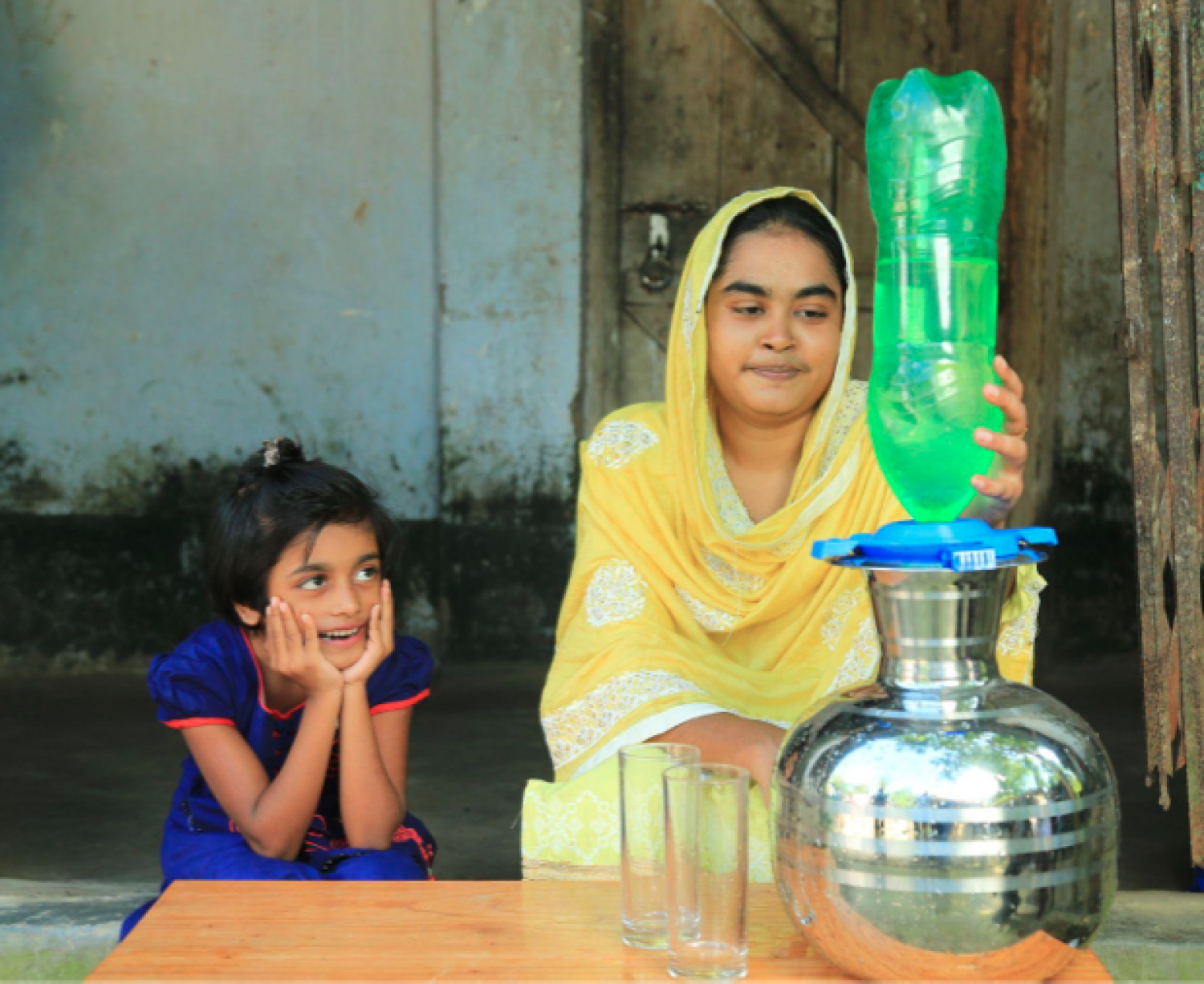
RELX Environmental Challenge 2025: four shortlisted projects to bring safe water and sanitation to communities around the world
The RELX Environmental Challenge 2025 shortlist features four innovative projects that provide sustainable access to safe water and improved sanitation. The RELX Environmental Challenge prioritises replicable, scalable, sustainable and innovative solutions. They must also have practical applicability and involve local communities and other key stakeholders.
The first prize winner will receive $50,000 with $25,000 for second place. To help them advance their work, all shortlisted candidates will receive one year’s access to RELX environmental content, including the premier sector journal, Water Research, through Science Direct, the world's leading source for scientific, technical, and medical research.
The RELX Environmental Challenge 2025 shortlisted entries are;
Folia Water Filters, an innovative, paper-based water filter that uses a patented silver-infused antimicrobial coating to provide safe drinking water. The filter, resembling a coffee filter couples physical filtration with chemical disinfection. It is designed to operate by gravity without the need for electricity and to be distributed inexpensively through existing grocery channels, delivering clean water by removing bacteria, protozoa, and viruses effectively.
STREED: Solar Thermal Resonant Energy Exchange Desalination, a novel, fully decentralised, membrane-free, solar thermal desalination system designed to address critical water scarcity and brine waste management issues, particularly in off-grid and low-resource communities. Developed over a decade at Rice University, STREED uses resonant energy transfer (RET) to efficiently evaporate and condense water, even from high-salinity and contaminated sources, offering continuous 24-hour operation without external energy storage. Its modular, low-maintenance design targets both small humanitarian applications and larger industrial needs such as managing reverse osmosis reject water and oil and gas wastewater.
Anteneh JerryCan, a low-cost and replicable, water transport solution engineered specifically for use in rural and rugged terrains where conventional wheel-aid transportation is impractical. The product features a torus-shaped jerry can with a distributed force design that alleviates the concentrated weight of traditional jerry cans. It incorporates unique shoulder straps and a design that minimises spinal pressure and skin friction, thereby reducing the physical strain of water fetching. Manufactured locally using widely available PVC plumbing materials, Anteneh JerryCan is designed to be both cost-effective and easily replicable.
Project WISE by Splash.org is designed to provide enduring, safe water and sanitation infrastructure to public schools in Zambia. The initiative will install upgraded V3 handwashing stations, drinking stations, sophisticated water filtration systems, and enhanced toilet facilities, integrated with behavior change programs and menstrual health education. Notably, each installation features a tamper- and theft-resistant spigot that conserves water by releasing it in a fan shape and is activated through a foot pump valve, ensuring efficient operation even under conditions of low water pressure.
A self-contained, non-sewered, urinal with integrated nutrient recovery that recycles 100% of the flush water while extracting valuable nutrients to create liquid fertiliser. The recycled water meets or exceeds ISO 30500 standards and is ideal for use in agricultural activities in both urban and peri-urban settings. The system employs electrodialysis paired with electrochemical disinfection to achieve a zero-liquid-waste design while minimising chemical use. The design is modular, scalable, and highly automated through features such as remote control, real-time monitoring, and built-in safety alarms, ensuring minimal routine maintenance.
Winners of this year’s Challenge will be announced at Pollutec, following the final stage of judging by an expert judging panel including Dr Mark van Loosdrecht, recipient of the prestigious Stockholm Water Prize, Dr Lewis Collins, Editor-in-Chief of One Earth, a Cell Press journal publishing research in environmental change and sustainability science and Virginia Gardiner, a sanitation expert and inventor of the Loowatt toilet system, first prize winner of the 2016 RELX Environmental Challenge.
The RELX Environmental Challenge advances United Nations Sustainable Goal (SDG) 6: Clean water and sanitation for all, one of the 17 SDGs featured on the free RELX SDG Resource Centre, which aims to illuminate the SDGs for everyone.
Read more about the RELX Environmental Challenge and the continued success of past winners.
Media contact:
Mirième Hill
RELX
London, UK
Mirieme.hill@relx.com
+44 20 7166 5500
